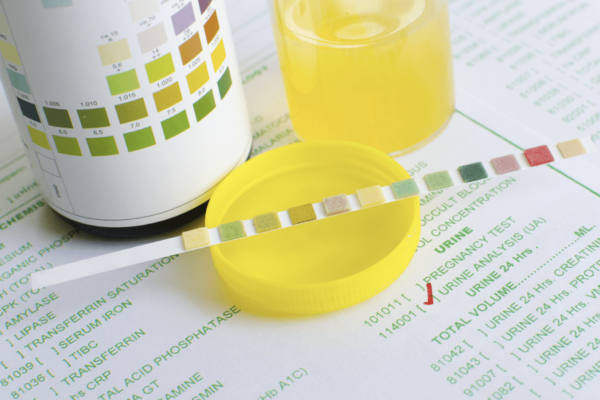Alcohol Rehab in Virginia: All Your Options Explained
When it comes to finding the right alcohol rehab in Virginia, it’s essential to understand the range of treatment options available. Different people have varying needs, and there isn’t a one-size-fits-all approach to overcoming alcohol addiction. To make an informed decision about treatment, you need to explore the several types of recovery options available.
In this article, we’ll delve into the different addiction treatment types, helping you grasp their significance and how they can contribute to your recovery journey.
1. Inpatient Residential Treatment
Inpatient residential for alcohol rehab treatment is an immersive approach to addiction recovery. Individuals seeking this type of treatment reside at a specialized rehab facility for an extended period, with programs often lasting from 28 days to several months. The structured environment provides a safe and supportive space for patients to focus entirely on their recovery. Inpatient treatment offers intensive therapy, individual counseling, and group sessions, all aimed at addressing the root causes of addiction.
Many patients choose inpatient if they’ve tried to quit addiction multiple times but have not been successful on their own. Based on your individual circumstances, such as how long you’ve been using and how much, as well as your medical history, your addiction medicine provider may recommend inpatient treatment.
However, it’s important to note that inpatient treatment is typically the more expensive treatment option, ranging anywhere from $10,000-$30,000, and insurance does not always provide coverage. Be sure to check with your insurance company when researching inpatient treatment facilities.
When you complete the inpatient program, you will be referred to an outpatient program for continued treatment. This is called a “step-down” program. In reality, many patients will not require inpatient treatment and can begin treatment in an outpatient setting.
2. Outpatient Treatment
Outpatient treatment is a flexible option for individuals who wish to continue living at home while undergoing alcohol rehab treatment. It is suitable for those with milder addiction or significant external responsibilities. Outpatient programs offer a range of services, including counseling, therapy, and group sessions. The flexibility of outpatient treatment allows patients to maintain their daily routines while getting the support they need.
Outpatient treatment can include additional services such as telehealth, at-home detoxification programs (at the discretion of your provider), and more, so be sure to check out what each facility’s program offers that fits your lifestyle.
3. Medication-Assisted Treatment (MAT)
Medication-assisted treatment (MAT) combines medications with counseling and therapy to treat substance use disorders. Medications like Naltrexone, Vivitrol, or Antabuse may be used to manage cravings and withdrawal symptoms associated with alcohol addiction. This approach provides a comprehensive solution that addresses both the physical and psychological aspects of addiction.
It’s important to note that not all centers offer MAT for alcohol rehab treatment, so be sure to ask your provider or center about their approach to incorporating medication into addiction treatment. Master Center never forces MAT in treatment, always keeping your comfort levels and health in mind. You can learn about MAT in alcohol rehab in our other article on medication for alcoholism (AUD).
4. Detoxification (Detox)
Detox is often the initial step in addiction treatment. It involves clearing addictive substances from the body, allowing individuals to start their recovery journey with a clean slate. Detox can be carried out in both inpatient and outpatient settings. Medical professionals may prescribe medications to ease withdrawal symptoms, making the process safer and more comfortable.
Master Center offers at-home detox programs, where patients can detox safely and under medical supervision. Over 90% of individuals requiring alcohol detox are good candidates for at-home detox. Call our Intake team at 804.332.5950 to see if you are one of them.
5. Intensive Outpatient Programs (IOP)
Intensive outpatient programs (IOPs) offer extended and more intensive treatment than regular outpatient programs. These programs include group therapy, individual counseling, and may incorporate MAT when necessary. IOPs are an excellent choice for individuals who require more support than standard outpatient treatment but don’t need the round-the-clock care of inpatient programs. Like outpatient programs, it allows the individual to undergo alcohol rehab treatment with less disruption to their everyday lives and receive the same intensive care. Similarly, IOP can include additional services like telehealth, so always ask the facility or provider to explore all options available to get the most out of the program.
IOP is the next step in treatment for patients who have completed inpatient treatment or an alcohol detox program. Additionally, IOP can be a “step-up” program for patients in a standard program who need a little extra support.
To learn more about Intensive Outpatient, check out Master Center’s IOP program and learn more in our article on the benefits of IOP.
6. Dual Diagnosis Treatment
Many individuals with addiction also struggle with co-occurring mental health conditions. Dual diagnosis treatment addresses both issues simultaneously. In fact, research shows that 1 in 4 adults living with severe mental illness also have a substance abuse problem, according to the Substance Abuse and Mental Health Services Administration. The most common disorders include PTSD, depression, anxiety, and severe mood disorders. Although a mental health issue does not cause a substance use disorder (or vice versa), they can make each other worse when they co-occur.
Dual diagnosis treatment is a vital approach to ensuring that all aspects of an individual’s well-being are considered during the recovery process. Treating addiction and mental health together is often more effective than addressing each issue in isolation.
Dual diagnosis treatment can look like outpatient treatment—with group therapy, medication, and counseling—and many centers offer additional services tailored specifically to those needs. Master Center offers addiction-specific psychiatry providers on staff to address dual diagnosis (or co-occurring disorders).
7. 12-Step Programs
12-Step programs like Alcoholics Anonymous (AA) and Narcotics Anonymous (NA) offer a structured approach to alcohol rehab treatment and recovery. They provide a set of principles and a supportive group environment. These programs encourage accountability, self-reflection, and regular attendance at meetings, fostering long-term sobriety.
8. Cognitive-Behavioral Therapy (CBT)
Cognitive-behavioral therapy (CBT) is a widely used form of psychotherapy used in counseling for alcohol addiction. It helps individuals identify and change negative thought patterns and behaviors associated with addiction. CBT equips patients with the tools to develop healthier coping mechanisms and reduce the risk of relapse.
9. Holistic and Alternative Therapies
Holistic and alternative therapies offer unique approaches to addiction treatment. These may include yoga, meditation, acupuncture, art therapy, and other non-traditional methods. These therapies focus on healing the whole person—mind, body, and spirit—contributing to a well-rounded recovery journey.
You can find many holistic and alternative therapies for alcohol rehab treatment in inpatient residential treatment facilities as part of a structured program. These are supportive programs and should be part of a treatment program that includes an addiction medicine specialist and clinical therapy from a licensed addiction counselor.
10. Family Therapy
Alcohol addiction doesn’t just affect the individual; it impacts their family as well. Family therapy involves the patient’s family in the treatment process. It helps them understand addiction, improve communication, and build new relationships. The support of loved ones can be a powerful asset during recovery.
Master Center offers multiple levels of support for families experiencing addiction—from free resources to psychoeducation classes and group therapy for adult family members. For more information on services and programming, check out our Family Program webpage.
11. Partial Hospitalization Programs
Partial Hospitalization Programs (PHPs) are like IOP. Both are intensive programs with hours of therapy every day, with PHP an even more intense program than IOP. PHP is often part of an inpatient program, but it can be offered as a standalone treatment option. It also requires the presence of a medical professional in case they are needed. And instead of 4 hours therapy every day as in IOP, PHP requires 6 to 8 hours per day, so it’s a fairly intensive option.
Conclusion
Now that you’ve gained insights into the various addiction treatment types, you can make an informed decision about which approach aligns best with your needs and goals. Alcohol rehab programs offer lots of choices for those seeking help. Outpatient programs allow flexibility, while residential rehab centers provide 24/7 care and supervision. Specialized treatment programs are also available to cater to specific needs and preferences.

Remember that seeking professional guidance is a crucial step in the recovery process. Reach out to addiction specialists or treatment centers to discuss your unique situation and find the most suitable path to lasting recovery. Additionally, before deciding, research each facility or program carefully. Read reviews and get advice from healthcare professionals or support groups. That’s the best way to ensure you are comfortable with your decision.
Concerned About Alcoholism (AUD)? Get a Consultation from Master Center for Addiction Medicine
Addiction is a chronic disease that can be treated, but never cured. And, when left untreated, AUD (like any substance use disorder) gets worse. If you have some of the symptoms of alcoholism (AUD), you may be wondering if you really have an addiction or something else and what to do now – before things get worse.
If you’re feeling this way, it’s time to speak with an addiction specialist – the same way you might consult a specialist in heart disease or diabetes for those medical concerns. A specialist in addiction medicine can provide a proper diagnosis of addiction and recommend an appropriate treatment pathway.
Master Center offers consultation appointments, in which you’ll meet with a medical doctor, physician assistant, or nurse practitioner, often with years of experience and specialized training in treating addiction. Get the expert medical advice you need in a no-pressure environment and without committing to an extended stay in rehab. Consultations are billed to your insurance and are both private and discreet.
Seeking aid for alcohol dependency can be intimidating, but it’s the first step to restoring your health and well-being. Give us a call at 804.332.5950 to discuss your options.
About Master Center for Addiction Medicine
Master Center for Addiction Medicine is a groundbreaking addiction treatment program headquartered in Glen Allen, Va. Based on a vision of comprehensive outpatient care, Master Center was launched in 2016 and now includes locations throughout the Commonwealth.
Master Center offers a coordinated, multidisciplinary approach rarely seen in the outpatient setting, staffed by experienced addiction physicians, psychiatrists, counselors, therapists, and peer recovery coaches. This evidence-based approach, both reliable and flexible, is meant to provide a physician-oriented response to addiction that can work seamlessly in the mainstream system of healthcare.

